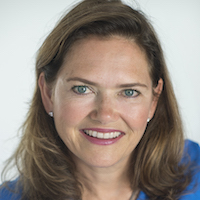The Future of Data-Driven Personalized Medicine: Keynote Reflections From Amy Abernethy, Chief Medical Officer and President of Product Development at Verily
Setting the Stage: Unlocking the Future of Precision Health Through Participant-Centric Evidence Generation
By Amy Abernethy, M.D., Ph.D.

Twenty years ago, the Human Genome Project accomplished the remarkable feat of mapping the first sequence of the human genome. This set off a wave of progress that has greatly furthered our understanding of the biology of disease, unlocking significant leaps in therapeutic and diagnostic technologies and bringing us closer to truly personalized medicine.
We now live in a time of unparalleled progress in science, technology, and the capabilities to improve health. These advancements include CRISPR, cell and gene therapies, mRNA technologies, and blood-based multi-cancer early detection tests, to name just a few.
Thanks to improved biological, multi-omics characterization of disease, we have the opportunity to develop better tools, such as biomarkers, that allow us to measure, and eventually predict, how different patients will respond to a particular intervention. Biomarkers can also enable earlier and more precise diagnosis of disease, allowing for earlier intervention and increased confidence in treatment selection.
But to realize the promise of novel technologies, we need to accelerate the pace and scale of evidence generation by collecting more data on how treatments work in the real world, at the individual level. Our legacy research systems continue to hold back an untold number of innovations in the biomedical field. New approaches are needed to remove the bottlenecks to innovation and accelerate the development of therapies in a safe and efficient way.
It is my life’s work to reimagine how we generate the data and evidence needed to realize the promise of precision health. It will require conducting research in a way that integrates into patients’ daily lives, and it starts by putting people at the center of the process. We need to make it easier for participants to engage in research, easier for them to understand how we use their data to advance research objectives, and easier to incorporate their feedback. We need to make them a true partner in the research that directly affects them.
If we can do this effectively, we can move toward a world where we’re able to prospectively collect long-term health data through longitudinal registries, connect research more seamlessly to care delivery, and with patient consent, integrate data from electronic health records and wearable-based sensors to create a more comprehensive picture of health. By making clinical research more accessible to broad populations, we can generate the evidence needed to enable precision health. This work isn’t easy, but just as digital tools have transformed every other aspect of our lives, we have the technologies to make it possible in healthcare.
One thing is clear. Just like the Human Genome Project, this work will take extensive collaboration. We need to continue bringing policymakers, sponsors, payers, and technology and data providers to the table to advance new approaches. The Personalized Medicine Coalition and the Annual Personalized Medicine Conference sit at the center of this process, convening many of these stakeholders, so that we can work together to advance personalized medicine and help improve health for everybody.




